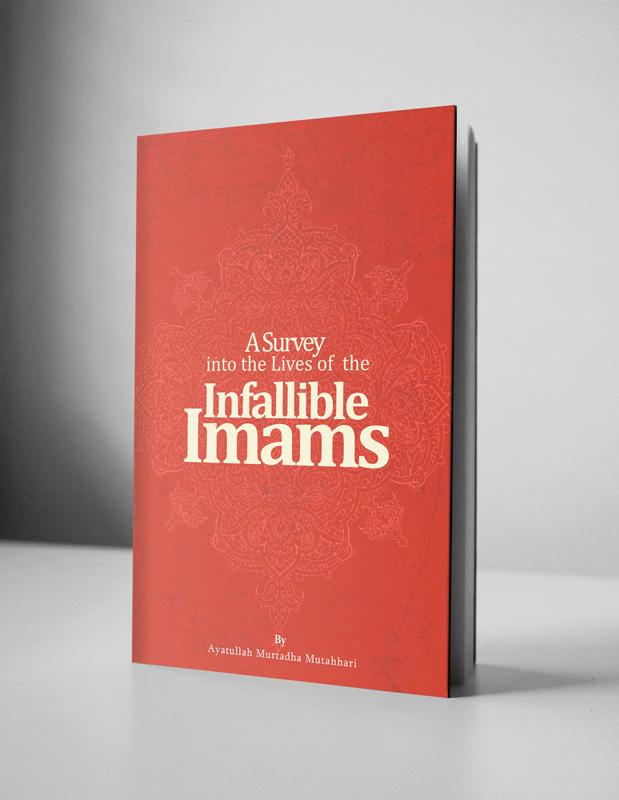Can ordinary human beings be infallible or not?
Humans are a creation with the ability to choose and have been created in a manner that if they choose righteousness, attach to faith and noble deeds, and refrain from divine prohibitions, they can reach the level of the caliphate of God; meaning that they have acquired all the perfections possible for a ‘human’ and lack all worldly and carnal defects and flaws, bringing them Wilayat Takwini and the ability to have an effect on the hearts of others.[1]
Choosing the right based upon knowledge and strong will lies in following one’s intellect, fitrah (god-given nature) and religion. However much deeper and stronger the knowledge and will of a person becomes, the more they will refrain from sins and errors. The reason for forgetfulness is lack of the attention and focus. If for one the divine prohibitions have importance and one is among the people who are in continuous remembrance of God, even forgetfulness can’t cause them to enter into sins and evil deeds. This is the station which infallibility is comprised of and one reaches the station of Wilayat and Divine Vicegerency. Since the divine prophets and apostles are the ones to be entrusted with divine revelation and have been recognized as the leaders and role models of mankind, they must be at the peak of this station for the following reasons:
So they can relay the complete and perfect message to humans
The people can trust and have faith in their words and actions
The people can take their actions and morals as role models for them so that they can train themselves and reach perfection and the station of divine caliphate. By continuing this path, they will reach their goal and reach the station of ‘Meeting God’.
For these reasons, under the blessings of God, along with the freedom to choose from their childhood till the end of their life, they are protected from sins, errors and mistakes. Infallibility needs to be at the highest level in them so people can trust and they can remain a proof on the people without excuses and other people can be encouraged to continue this path.
So every human has the ability to traverse the path to infallibility, the station of Wilayat, and divine caliphate. However much one struggles and practices piety, the more blessings will be given and the more God will assist them. God has promised that: Practice taqwa so that God may teach you.[2] He also says: However much one struggles in Our way, We will open up ways for him and God is the virtuous.[3] God also says if one increases their faith, He will give them the criterion (ability to determine truth from falsehood) and forgive your faults and sins.[4] He also says: Whoever-be it female or male- is with faith and does righteous acts, He will give them a noble life (high than the normal life of a good person) and will forgive them and will reward them more than the actions that they have done.[5]
It has come in a Hadith Qudsi that: If my servant is occupied by me and it overcomes him, I will give him the strength and joy for My remembrance. He will become My lover and I will become his lover and I will remove the barriers between Me and him. When the people forget and cannot recall matters, he will remember and be able to recall (He will not be vulnerable to sins and mistakes). If he speaks, he will speak like the prophets, who are the highest individuals that can ever be found in all times. When I am about to send my punishment on the people, I remember them and do not send My punishment on the people of the earth.[6]
So, as was mentioned above, in addition to all the intellectual and transmitted proofs that back it, the concept of the infallibility in the prophets and imams (peace be upon them) is one of total necessity.[7] However, it is not specific to them and each person according to their struggle, piety, knowledge and will, can acquire it so that its signs can be manifested through them.
In addition to these signs that are manifested in the Prophets and Imams, they are also appointed by God to the station of Prophethood or Guardianship. This signifies that their infallibility is at the highest point possible for man, otherwise it would contradict the divine wisdom and knowledge, the reason for prophethood and guardianship which is the guidance and nurturing of humans and propagating and defending the religion of God.[8] As for how to be able to distinguish those other than the prophets and imams who may bear infallibility to some extent:
Refraining from sins in places and situations in which normal people will usually be vulnerable and sin. Ex: When taking high posts, positions or popularity, or vast amounts of wealth.
The ability to perform miracle-like and extraordinary actions. Ex: Awareness of others’ intentions, curing the sick, easing the difficulties or hardships which are beyond the capacity of normal humans.
The acceptance and answering of their prayers or curse.
The influence on people’s hearts and being able to change them.
Calmness and peace of mind and taking the right stance in personal and/or social affairs.
The ability to thwart and facilitate divine punishment or rewards as a result of becoming a medium through which Allah’s grace flows through.
It is important to keep in mind that the Prophet (peace upon him and his family) and the imams have an elevated station that is not possible for anyone to reach. Among the prophets themselves there are stages and levels. The Prophet of Islam (peace be upon him and his family) and his family are at the peak. The Prophet is the most elevated followed by the Imams, the rest of the prophets and then mankind.
There is an ascending level of infallibility and divine caliphate is comprised of multifold stages and is not planar or on the same level. Thus, to be able to distinguish who is higher, is something only for those possessing divine knowledge.[9]
————————————————————-
Sources
Holy Qur’an
Jawadi Amuli, Abdullah; Tahrir tamhid al-Qawaid, Al-Zahra Publications, Volume 1, Page 1372, Tehran.
Jawadi Amuli, Abdullah; Wilayat dar Qur’an, Isra, Volume 1, 1379, Qum.
Jawadi Amuli, Abdullah; Hikmat ‘Ibadaat, Isra, Volume 2, 1378, Qum.
Husain Tehrani, Muhammad Husain; Tawhid ‘Ilmi wa ‘Ayni, Allamah Tabatabai Publications, Volume 2, 1417, Mashad.
Sadr, Ayatullah Muhammad Baqir; Khilafat Insan wa Ghawahi Payambaran, Translated by Jamal Musawi, 1359, Tehran.
Kiyashmiskhi, Abulfadhl; Wilayat dar ‘Irfan, Dar al-Sadiqin, Volume 1, 1378, Tehran.
Mutaharri, Murtadha; Insan Kamil, Sidra Publications, Volume 8, 1372, Qum.
Mutaharri, Murtadha; Wilaha wa Wilayat’ha, Office of Islamic Publications, Qum.
Maliki Tabrizi, Jawad; Risalah Liqa Ullah, Volume 2, 1379, Tehran.
—————————————————————
[1] See the following articles of this website: Becoming Allah’s beloved one, Salvation and man’s perfection, Nearness to Allah….
[2] Baqarah:282, Taghabon:11.
[3] Ankabut:69.
[4] Anfal:29.
[5] Nahl:97.
[6] Quoted from: Hoseini Tehrani, Mohammad Husein, Towhide Elmi va Amali, pg. 337.
[7] See: Misbah Yazdi, Mohammad Taqi, Rah va Ravesh’shenasi, pp. 147-212.
[8] See: Misbah Yazdi, Mohammad Taqi, Rah va Ravesh’shenasi, pp. 147-212.
[9] See the following articles of this website: The infallibility of the prophets from the Quran’s perspective, The infallibility and sin of the prophets according to the literal meaning of Quranic verses.





